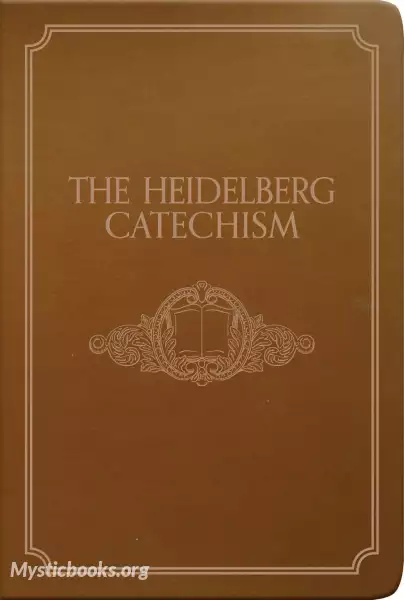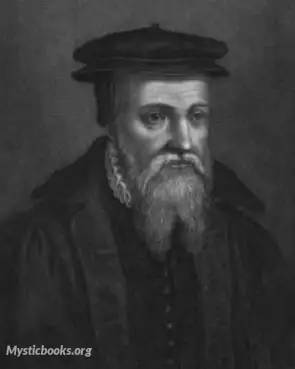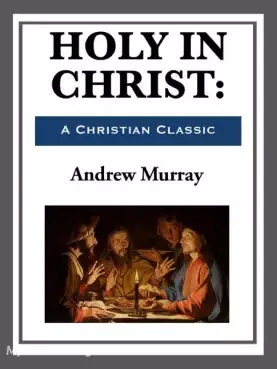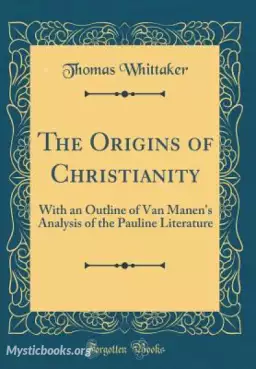
The Heidelberg Catechism
'The Heidelberg Catechism ' Summary
Elector Frederick III, sovereign of the Electoral Palatinate from 1559 to 1576, commissioned the composition of a new Catechism for his territory. While the catechism's introduction credits the "entire theological faculty here" (at the University of Heidelberg) and "all the superintendents and prominent servants of the church" for the composition of the catechism, Zacharius Ursinus (1534–83) is commonly regarded as the catechism's principal author. Caspar Olevianus (1536–87) was formerly asserted as a co-author of the document, though this theory has been largely discarded by modern scholarship. Johann Sylvan, Adam Neuser, Johannes Willing, Thomas Erastus, Michael Diller, Johannes Brunner, Tilemann Mumius, Petrus Macheropoeus, Johannes Eisenmenger, Immanuel Tremellius and Pierre Boquin are all likely to have contributed to the Catechism in some way. Frederick himself wrote the preface to the Catechism and closely oversaw its composition and publication.
Frederick, who was officially Lutheran but had strong Calvinist leanings, wanted to even out the religious situation of his highly Lutheran territory within the primarily Catholic Holy Roman Empire. The Council of Trent had just finished its work with its conclusions and decrees against the Protestant faiths, and the Peace of Augsburg had only granted toleration for Lutheranism within the empire where the ruler was Lutheran. One of the aims of the catechism was to counteract the teachings of the Catholic Church as well as Anabaptists and "strict" Gnesio-Lutherans like Tilemann Heshusius (recently elevated to general superintendent of the university) and Matthias Flacius, who were resisting Frederick's Reformed influences, particularly on the matter of the Eucharist.
The Catechism based each of its statements on Biblical source texts (although some may call them "proof-texts" which can have a negative connotation), but the "strict" Lutherans continued to attack it, the assault being still led by Heshusius and Flacius. Frederick himself defended it at the 1566 Diet of Augsburg as based in scripture rather than based in Calvinism when he was called to answer to charges, brought by Maximilian II, of violating the Peace of Augsburg. Afterwards, the catechism quickly became widely accepted.
The Catechism is divided into fifty-two sections, called "Lord's Days," which were designed to be taught on each of the 52 Sundays of the year. A synod in Heidelberg approved the catechism in 1563. In the Netherlands, the Catechism was approved by the Synods of Wesel (1568), Emden (1571), Dort (1578), the Hague (1586), as well as the great Synod of Dort of 1618–19, which adopted it as one of the Three Forms of Unity, together with the Belgic Confession and the Canons of Dort. Elders and deacons were required to subscribe and adhere to it, and ministers were required to preach on a section of the Catechism each Sunday so as to increase the often poor theological knowledge of the church members. In many Reformed denominations originating from the Netherlands, this practice is still continued.
Book Details
Language
EnglishOriginal Language
GermanPublished In
1563Genre/Category
Tags/Keywords
Authors

Zacharias Ursinus
German
Zacharias Ursinus was a sixteenth-century German Reformed theologian and Protestant reformer, born Zacharias Baer in Breslau (now Wrocław, Poland). He became the leading theologian of the Reformed Pro...
Books by Zacharias UrsinusListen/Download Audiobook
- Select Speed
Related books

The Master's Indwelling by Andrew Murray
In all the writings of the late nineteenth century minister and writer Andrew Murray, we see his passion for reality in the lives of Christian believe...

Commentary on the Gospel of John, Book 1 by Cyril of Alexandria
Cyril of Alexandria's *Commentary on the Gospel of John, Book 1* provides a detailed exegetical analysis of the first 28 verses of the Gospel of John,...

Holy in Christ by Andrew Murray
"Holiness is not something we bring to God or do for Him. Holiness is what there is of God in us. God has made us his own in redemption, that He might...

Concerning Christian Liberty by Martin Luther
Early in the course of the Reformation Martin Luther penned a trilogy of foundational documents addressing the Church, the Nobility and the Christian...

Bible (DBY) AT 01-05 : Pentateuque <small>(Genèse, Exode, Lévitique, Nombres et Deutéronome)</small> by Darby Bible
Le Pentateuque, composé de cinq livres, présente les débuts de la relation entre Dieu et l'humanité, ainsi que le peuple d'Israël. Il retrace la créat...

The Golem: A legend of old Prague by Rudolf Lothar
Rabbi Loeb creates a clay man to house a perfect soul that he hopes will not be blighted by human prejudices. The plan does not go as he hoped... This...

The Great Apostasy by James E. Talmage
The Great Apostasy Considered in the Light of Scriptural and Secular History is a 1909 book by James E. Talmage that summarizes the Great Apostasy fro...

The Origins of Christianity by Thomas Whittaker
In this book, Thomas Whittaker outlines the arguments of van Manen for an English-speaking audience. Van Manen’s work is not now generally known, but...

The Ministry of Intercession by Andrew Murray
Andrew Murray sub-titled this book "A Plea for More Prayer". In it, he shows how throughout Scripture, in the life of every saint, and that of God’s o...

Stories of the Saints by Candle-Light by Vera Charlesworth Barclay
Once upon a time there were fifteen Cubs who spent nine wonderful days in camp. They were London Cubs, and the camp was on a beautiful little green is...
Reviews for The Heidelberg Catechism
No reviews posted or approved, yet...